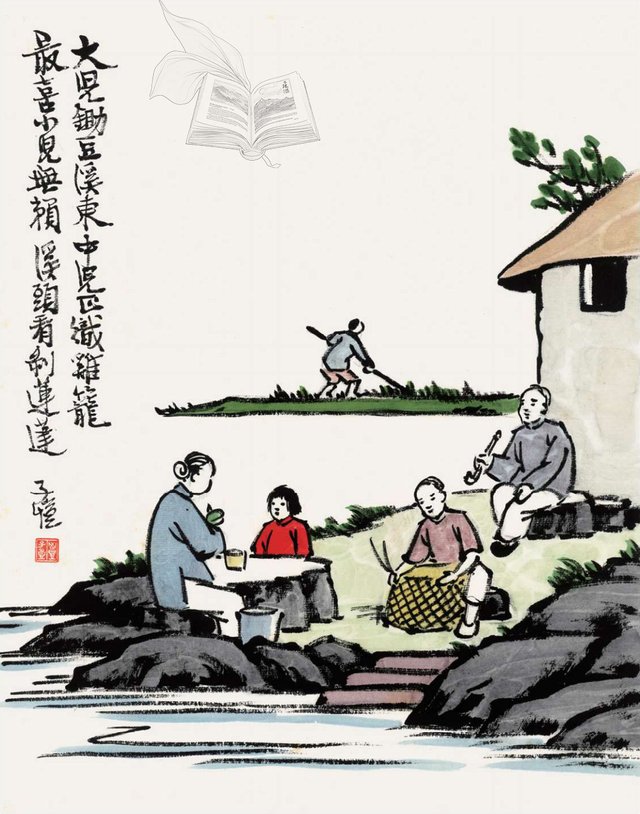The oldest son is hoeing, the second son is weaving a chicken coop, and the favorite youngest son is watching his grandmother peel a lotus seedpod.
清平樂•村居
宋•辛棄疾
茅檐低小,溪上青青草。醉裏吳音相媚好,白髮誰家翁媼?
大兒鋤豆溪東,中兒正織雞籠。最喜小兒亡賴,溪頭臥剝蓮蓬。

清平樂•村居
宋•辛棄疾
茅檐低小,溪上青青草。醉裏吳音相媚好,白髮誰家翁媼?
大兒鋤豆溪東,中兒正織雞籠。最喜小兒亡賴,溪頭臥剝蓮蓬。

你逗我笑了! 如果你喝醉了,你喜欢我的声音吗? 你最喜欢死掉的最小的孩子吗? 🤣🤣🤣
谁能想到你如此诚实。
话是你说的,画是谁画的?
欢迎光临
@moonscene
I guess the translation software you're using isn't good enough at translating Chinese. In ancient China, “亡賴” means a child is naughty and mischievous.
Well, than it is a good idea you write in English like we all (might give translation errors as well) but English is the language of the community. Welcome again.
Thank you for your suggestion. As a matter of fact, it is very difficult to translate ancient Chinese poems into English, because it would lose the core feature of the poems: rhyming.
Famous Chinese writer: Mr. Lin Yutang, who once worked very hard to translate some Chinese literature in English, which is already the ceiling for translators.
I am afraid that if it comes to translating it always loses a part of it's meaning unless the one who reads it can read between the lines. It will happen with every language also because one language has way more words to express feeling.
I agree with your statement about switching between different languages. Translating a language can have two results at the same time: it expresses the basic meaning of the discourse, and it also loses the other meaning that is implied in the native language.
I'll add some explanatory English to the previous posting, and thanks again for the suggestion.
Super. I thank you in advance